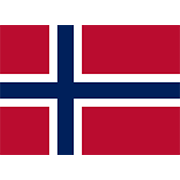Fiscal subject related
According to a survey by Norway’s central bank, only three percent of customers in Norway used cash to pay for their shopping.
A recently enacted amendment to the Central Bank Act, backed by the government and Norges Bank, clarifies that consumers have the right to pay with cash for amounts up to 20,000 kroner (approximately 1670 EUR). The legislation states: "In sales premises where a business regularly sells goods or services to consumers, the consumer shall be offered the option to pay with legal tender if it is possible to pay for the goods or services with other payment solutions. If the business has available change, it must also offer to provide change in connection with the payment, unless there is a clear discrepancy between the banknote offered as payment and the amount to be paid.“ The rules must be applied from October 1st, 2024.
The government has committed to imposing fines on businesses that intentionally or carelessly disregard these regulations.
Minister of Justice and Public Security remarked that in a digital world, it can be easy to overlook that many people are not digital users, and that cash is also crucial for societal emergency preparedness.
Other news from Norway
Norway: Businesses Must Create Daily Z Reports, Printing Can Follow Later
 Norway
Author: Ivana Picajkić
Norway
Author: Ivana Picajkić
Under the new bookkeeping rules, businesses using cash register systems must prepare a daily cash settlement. Read more
Subscribe to get access to the latest news, documents, webinars and educations.
Already subscriber? Login


New document was uploaded: EV-chargers from the Fiscalization Perspective in Norway
 Norway
Author: Ivana Picajkić
Norway
Author: Ivana Picajkić
The purpose of this document is to explain rules regarding the treatment of EV chargers for electric vehicles in Norway in relation to fiscalization. The document will explain whether they are subjects of fiscalization or not, whether there are some special rules and regulations, or if there are some special rules Read more
Subscribe to get access to the latest news, documents, webinars and educations.
Already subscriber? Login


Norway: Stored Receipts Must Be Closed Before Day-End
 Norway
Author: Ivana Picajkić
Norway
Author: Ivana Picajkić
The Norwegian Tax Administration mandates that businesses finalize all sales before issuing a daily Z report. Read more
Subscribe to get access to the latest news, documents, webinars and educations.
Already subscriber? Login


Reminder: Norway’s Strict Rules on Invoices
 Norway
Author: Ivana Picajkić
Norway
Author: Ivana Picajkić
The Norwegian Tax Administration has reiterated that invoice numbers must not be altered and may only be generated through certified invoicing software or pre-printed forms bearing the seller’s enterprise details. Read more
Subscribe to get access to the latest news, documents, webinars and educations.
Already subscriber? Login


Norway: Bergen seeks permission for Sunday shopping
 Norway
Author: Ivana Picajkić
Norway
Author: Ivana Picajkić
Bergen and Oslo are seeking national approval to allow Sunday shopping, aiming to meet tourist demand while challenging Norway’s tradition of keeping shops closed on Sundays Bergen’s city council has voted to apply for national recognition as a “typical tourist destination.” If approved, this would allow shops in certain parts of the city to open on Sundays. Oslo has made the sa... Read more



Norwegian Tax Administration Clarifies: Bookkeepers Cannot Develop Their Own POS Systems
 Norway
Author: Ivana Picajkić
Norway
Author: Ivana Picajkić
The Norwegian Tax Administration has clarified that businesses subject to bookkeeping obligations cannot issue product declarations for POS systems they develop themselves, as only independent suppliers are authorized to do so under the Cash Register Systems Act. Let's find out what elese do you need to know! Read more
Subscribe to get access to the latest news, documents, webinars and educations.
Already subscriber? Login


Norway: The New Altinn Portal – Simpler, Safer, more Modern
 Norway
Author: Ivana Picajkić
Norway
Author: Ivana Picajkić
Norway is rebuilding the Altinn portal with a modern platform that offers stronger security, simpler design, mobile-friendly access, and improved integration options for professional systems. The rollout will be gradual, starting this autumn with a new inbox and system access features, while ensuring continuity with the existing portal during the transition. Altinn has served citizens and business... Read more


